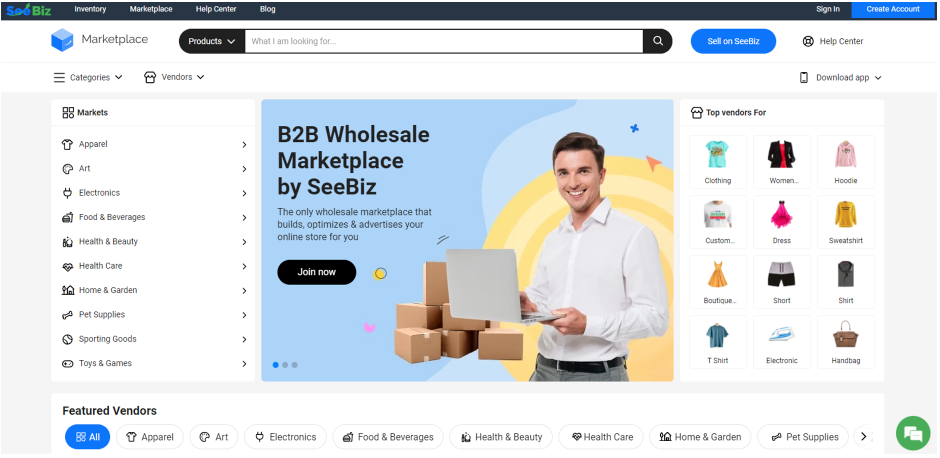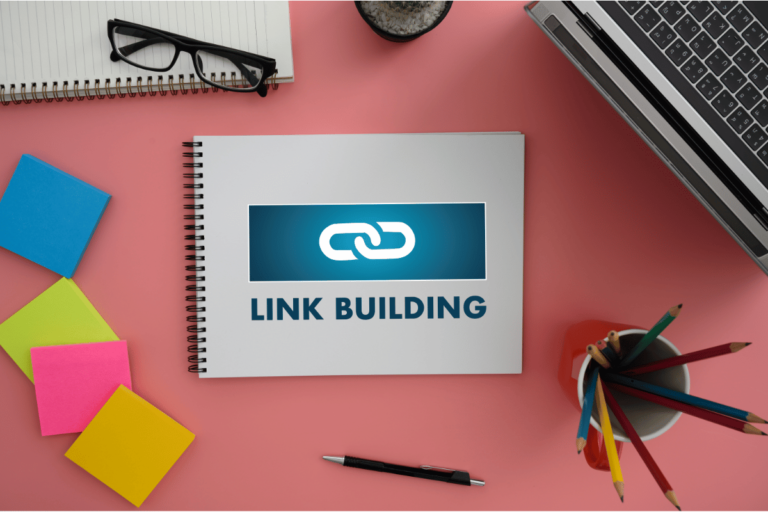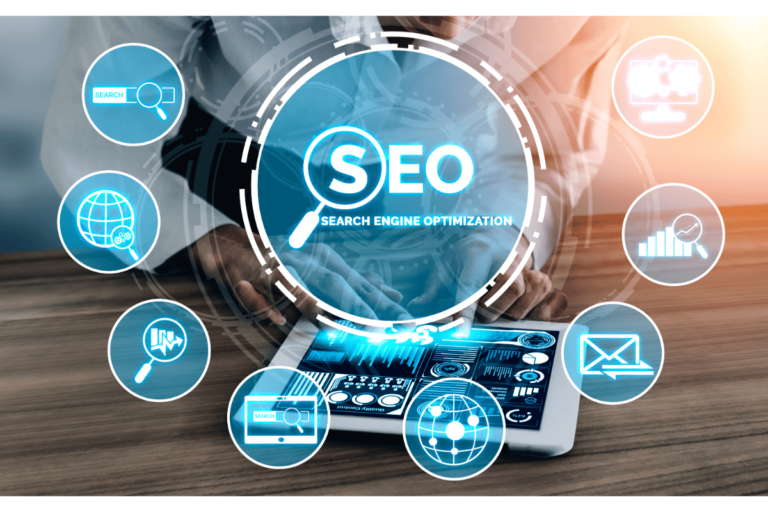Top E-Commerce Platforms in 2024
Today, every business needs to be online even the small ones because the market is currently digital oriented. Selecting the right e-commerce platform is one of the most important decisions that any business can make. With more consumers shopping online, it is important to have a reliable, scalable, and user-friendly e-commerce website.
Moving ahead in 2024, some e-commerce platforms stand out with their features, flexibility, and effectiveness in achieving business goals online. This article aims to identify the top e-commerce platforms in 2024 and the features that make them good for various business needs.
Why an E-Commerce Platform Matters
An e-commerce platform is the backbone of an online store as it includes product catalogs, sales, customer service, and marketing strategies. Choosing the right platform can often make or break a business’s ability to attract and retain customers, improve efficiency, and expand. In order to get the most out of the selected platform, businesses can also consider working with professional ecommerce development services.
Top 5 E-Commerce Platforms in 2024
In 2024, there are some key players that influence the e-commerce industry. Such platforms provide end-to-end solutions and facilities that help businesses create, manage and grow their online stores.
1. Wix
Wix is a well-known website builder that has a simple drag and drop function to help small business owners and individuals in creating their websites. Wix has over 900 professional templates and uses artificial intelligence for website creation and has SEO tools for creating strong online stores.
Its simple drag and drop interface makes designing easy while AI features help with SEO and website optimization. Also, Wix has some in-built e-commerce features including product catalog, inventory management and payment processing which makes it a one-stop solution for small business.
Pros & Cons:
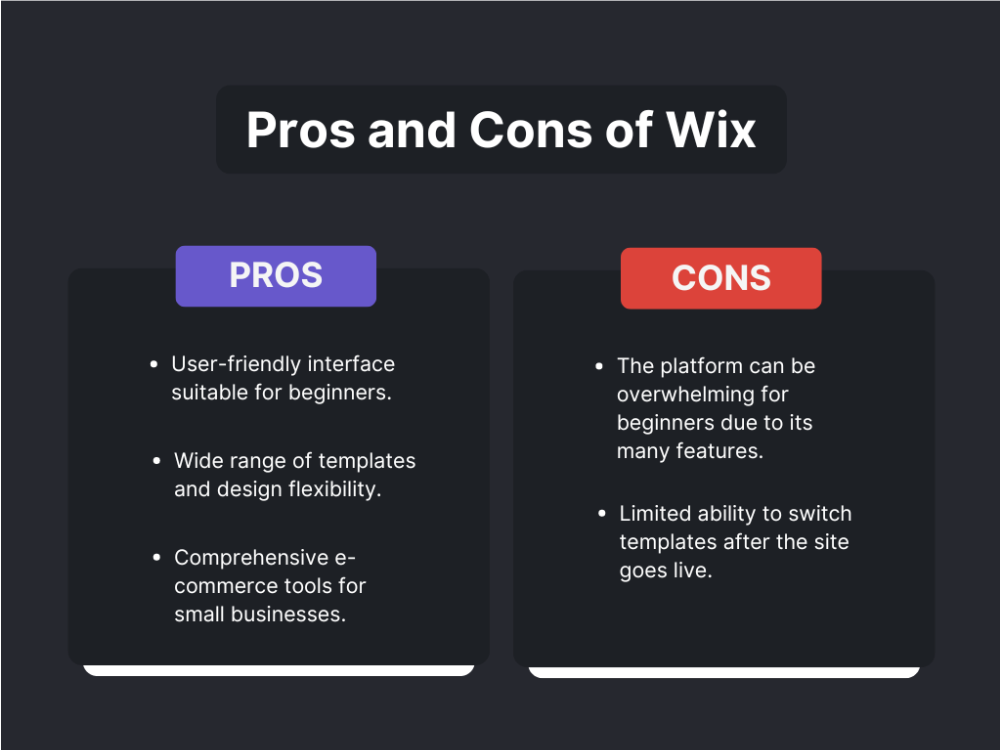
Ideal For:
Wix is perfect for anyone who wants a simple and easy to use website builder for their small business, as a freelancer, or for any other purpose. Despite its strengths, Wix may not be the best fit for larger enterprises with sophisticated requirements.
2. WooCommerce
It is an open source e-commerce plugin that is primarily developed for use on WordPress. It has become one of the most used commerce platforms for businesses that already have their websites on WordPress since it has a lot of customization and flexibility options for online shops.
WooCommerce works effortlessly with WordPress and enables users to easily turn their current websites into online stores. It supports a number of product types: physical, downloadable, and even subscription-based. WooCommerce has a high level of flexibility as it is backed by a wide range of themes and plugins that can be used to create a unique online store for any business. Furthermore, the platform integrates multiple payment gateways and provides tools for monitoring sales and customers.
Pros & Cons:
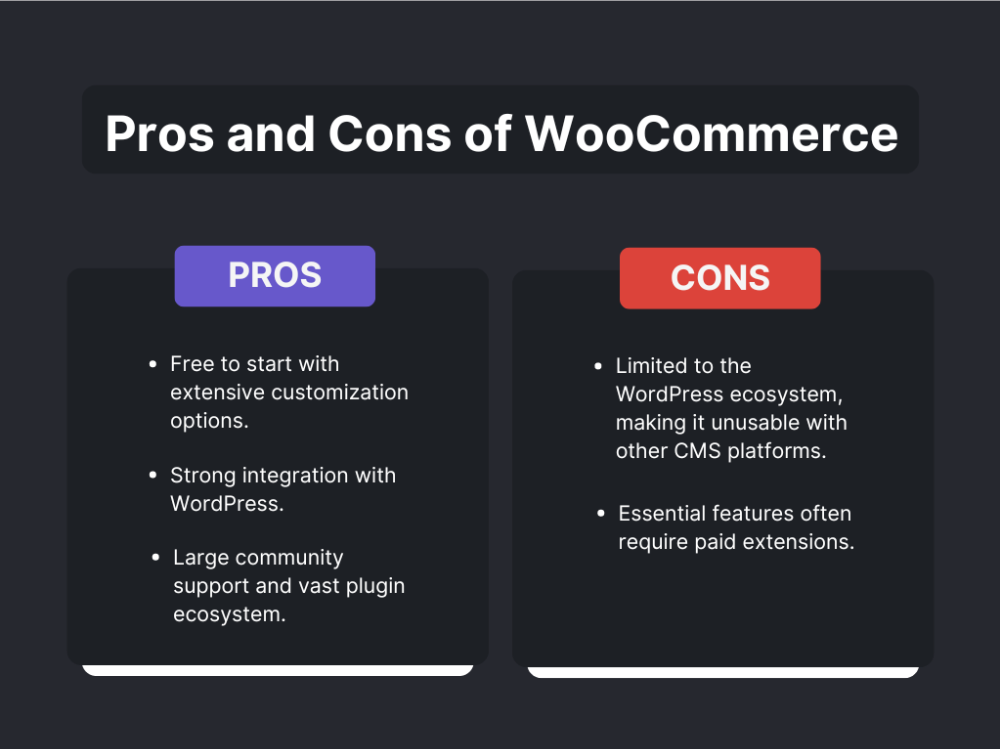
Ideal For:
WooCommerce is ideal for businesses that are already using WordPress and need a powerful and a highly flexible solution for their business. It is ideal for those who wish to have complete control over the appearance and features of their online shop.
3. Squarespace
Squarespace is a website builder which is famous for its elegant, minimalistic designs. It enables strong e-commerce functionality which makes it perfect for creative people, enterprises and anybody who wants both beauty and usefulness in their store.
Squarespace offers over 110 templates that are both mobile-friendly and customizable with a drag and drop interface. The e-commerce features of the platform include product management, order processing, and marketing tools like email marketing and social media integration.
Pros & Cons:

Ideal For:
Squarespace is great for artists, bloggers, business people, and anyone else who wants a site that is equally beautiful and functional. It is especially ideal for those who value appearance and wish to have an easy-to-use option that encompasses all the features they need, but it may not be ideal for larger and more complicated organizations.
4. Shopify
In 2024, Shopify continues to be one of the most popular e-commerce platforms due to its flexibility, simplicity, and suitability for businesses of all sizes. Shopify offers a complete set of features that help businesses to build, operate, and grow their e-commerce stores quickly.
Shopify has numerous features such as the ability to choose a template, has a built-in payment gateway, and allows to sell products on multiple platforms. Shopify has a point of sale (POS) system that means businesses can sell their products on social media, marketplaces and physically. If you are looking for extensive customization then hiring Shopify development services can make a substantial impact.
Pros & Cons:

Ideal For:
Shopify is great for any business from small businesses to large corporations that are in search of a robust and adaptable e-commerce solution.
5. Magento (Adobe Commerce)
Magento, recently rebranded as Adobe Commerce, is an open-source solution for extensive, highly customizable B2B and B2C businesses. It is suitable for large enterprises that require a platform that can manage high traffic, large stock, and complicated processes.
What sets Magento apart from other such systems is its flexibility. It provides a very high level of control over every element of the online shop, including the visual and operational. It also has B2B and B2C capabilities with features like price management, bulk ordering, and multiple websites. With the help of an expert Adobe Commerce agency, you can work with big data, which makes it a perfect solution for companies with numerous products and a great flow of visitors.
Pros & Cons:

Ideal For:
Magento is suitable for large enterprises that have complex e-commerce requirements. This model is suitable for businesses that need a lot of flexibility and personalization and also for those that operate in both B2B and B2C markets. However, smaller businesses or those without technical expertise may find Magento’s complexity overwhelming.
Conclusion
Selecting the right e-commerce platform is one of the most important factors that determine the success or failure of an e-business. Each platform mentioned in this article is unique and suitable for various businesses. If you are a businessman in search of an easy-to-use tool or an enterprise in need of a highly flexible and expandable solution, this is where you will find it. If you want to upscale the possibilities of your e-commerce success, then opting for e-commerce development services or Shopify development services might be the way to go.

